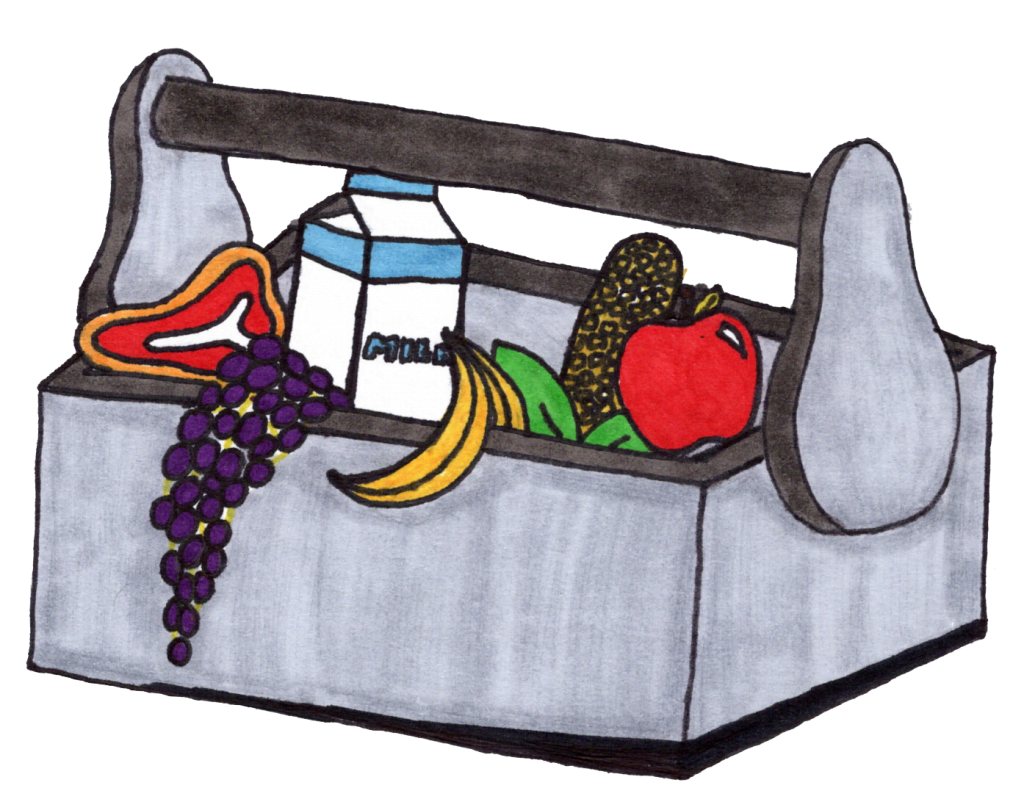
This is the first installment in a series of articles designed to help you make dietary choices to strengthen your body’s immune system to fight communicable diseases like colds, flu, and COVID-19. This information in this article is not intended to replace your normal supervised medical care regimen. Always consult your health care provider before making major changes in your diet, especially if you have an acute or chronic disease.
If you are of a seasoned age, you may remember bygone days of some toddlers, children, and adults walking bow-legged. What you saw in most of those individuals was a bone disease called rickets, caused by a vitamin D deficiency. You don’t see rickets much these days because manufacturers now fortify milk and some juices and cereals with vitamin D. But researchers in the last decade or so found that many Americans, up to 50% of us, are still deficient in vitamin D, although not at low enough levels to cause severe bone diseases like rickets. They also discovered vitamin D plays an important role in keeping the body’s immune system in tip-top shape to fight off infections, including COVID-19. That’s why we should add Vitamin D to our Toolbox for a Healthy Immune System.
You may be asking, “What is vitamin D,” or even, “What is a vitamin?” Vitamins are substances in foods that our bodies need to function properly. Vitamin D, which works in the body as 1, 25-dihydroxyvitamin D, is both a nutrient we get from food and a hormone our bodies make when our skin is exposed to ultraviolet (UV) rays in sunlight. Humans at one time produced most of the vitamin D they needed from being in the sun. But these days, many of us work and play indoors, and when we are outside, we slather on sunscreen to block many of the UV rays from penetrating the skin, since UV rays can cause wrinkles and skin cancer. Our diets often do not make up for missing out on sunshine, as many of us do not eat enough vitamin D-rich foods such as salmon, tuna, eggs, mushrooms, and fortified milk, juices, and cereals to make up the difference. Adding to the problem, common health conditions such as obesity, irritable bowel syndrome, and kidney disease can hinder vitamin D production and utilization in the body.

When people don’t get enough vitamin D to support good health, they may get colds and other infections often, feel tired or fatigued, have back or bone pain, or even feel depressed. Or they may not have any noticeable symptoms at all! The only way to know for sure if your body does not have enough Vitamin D is to ask your health care provider to run a simple blood test. If the test shows an insufficiency or deficiency, your provider will prescribe a supplement to get your vitamin D levels up.
But what can you do until you see your health care provider? Well, if you’re not at increased risk for skin cancer and don’t mind an extra wrinkle or two as you age, you can get about 20 minutes of sunlight on your bare arms and legs a few days per week. You can also eat vitamin D-rich foods daily, as it is recommended that adults consume 800 International Units (IU) daily in their foods. However, because of our indoor lifestyles and use of sunscreen when outdoors, it may be almost impossible to get enough. Vitamin D is the one nutrient that most of us may need to supplement via a pill, especially in the winter months when our skin gets little sun. Most adults can safely take up to 4,000 IU of vitamin D3, also known as cholecalciferol, the best supplemental form of vitamin D. For my adult patients who wish to supplement, I recommend they take 1,000-2,000 IU of vitamin D3 per day until they talk to their healthcare provider. If you decide to start a vitamin D3 supplement, note that if you already take a multivitamin, you may be getting some vitamin D3, possibly 1,000-2,000 IU, so check the label before going out and buying another supplement. If your health care provider diagnoses you with a vitamin D insufficiency or deficiency, he or she may prescribe 5,000-7,000 IU of vitamin D3 daily or a larger dose weekly. But it is important not to take amounts over 4,000 IU daily without checking with your health care provider first. As with almost everything in life, getting enough of a good thing is very beneficial, but overindulging can cause harm.
Children can get a boost of Vitamin D by taking a multivitamin daily, especially in the winter months when they are not out in the sun a lot. Most children’s vitamins contain 600 IU of vitamin D3, which is the recommended daily allowance set by the U.S. Food and Drug administration for children over one year. If a child’s pediatrician diagnoses a vitamin D insufficiency or deficiency, he or she will prescribe more. Pediatricians usually prescribe breastfed babies 400 IU of vitamin D3 because breastmilk usually does not contain enough. Sometimes they prescribe vitamin D3 or multivitamins automatically to children, without blood tests, just to be certain the children are getting enough.
It may be especially important for all of us, children and adults, to have enough vitamin D in our bodies during the COVID-19 pandemic. Numerous studies suggest that vitamin D exerts multiple actions that help protect our bodies against the virus that causes COVID-19, and, for those who do become infected, vitamin D may help to prevent serious illness. So, get a little sunshine, if you can, eat some vitamin D-rich foods daily, and talk to your health care provider about taking a vitamin D3 supplement. Having enough vitamin D in your diet is an easy COVID-19 defense strategy!
Our immune systems serve us very well to keep us healthy and fight off infections, but we must give our bodies the tools to get the job done! Vitamin D is a very important addition to our Toolbox.
If you’d like more information, feel free to call or email me for an appointment. I will get back to you when I get in from soaking up 20 minutes of sunshine.
(Sources consulted: Websites by the National Institutes of Health, Harvard Medical School, Academy of Nutrition and Dietetics, Cleveland Clinic, Mayo Clinic, Centers for Disease Control and Prevention, and Skin Cancer Foundation)
Kay S Beatty, MS, RDN is a registered dietitian nutritionist and owner of Healthy Weight Options, LLC, www.HealthyWeightOptionsLLC.com. Contact her at Kay@HealthyWeightOptionsLLC.com or 540-560-9232. She is an in-network provider with Anthem Blue Cross/Blue Shield and Healthkeepers, Cigna, Aetna, United Healthcare, and VA CNN; patients with these insurances do not have any out-of-pocket expenses. She is also a Medicare provider.




































